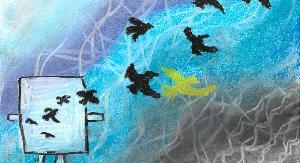Learn about Kyuante Jenkins, CBT Recovery Community Assistant Director at Skyland Trail.
Read More >>Learn about common cognitive distortions that lead to unhealthy thought patterns and influence moods and behaviors in harmful ways.
Read More >>Mental health is an essential aspect of one’s overall well-being. Believing myths about therapy can further propitiate suffering and keep people from getting help. Having an open and honest dialogue about mental health helps destigmatize seeking professional help, and understanding the truths about therapy and debunking myths can help individuals make informed decisions about how…
Read More >>Holidays don’t have to feel lonely. Skyland Trail CBT experts share tips on ways to stay connected over the holidays. Plan in advance and get a few things on the calendar so you have something to look forward to. 1. Plan ahead and reach out. If this is your first holiday away from your loved ones…
Read More >>In psychiatry, OCD is sometimes referred to as “the great imitator” because the behaviors of someone with OCD can look like symptoms of many other disorders. Psychiatric evaluation by a mental health professional is a crucial first step to ensure patients with OCD receive an accurate diagnosis and are matched with an evidence-based treatment plan. OCD is a chronic illness. By engaging in evidence-based mental health treatment, individuals with OCD can control the symptoms and manage the associated disability.
Read More >>For decades, youth sports in the United States has been an avenue for kids of all ages to make friends, be physically active, challenge themselves, and learn skills such as teamwork, sportsmanship, and the value of hard work—all of which can provide great stepping stones towards personal growth and achievement later in life. When it…
Read More >>Roughly one-third of people with major depressive disorder are affected by treatment-resistant depression, also known as TRD.
Specialized, evidence-based treatment can help people battling treatment-resistant depression reduce their symptoms, improve functioning, and feel better.
Read More >>Bipolar disorder and borderline personality disorder are two mental illnesses that can cause significant disability and disruption in someone’s life. Despite being commonly grouped together or even used interchangeably in movies, TV, and other pop culture references, they are two separate and distinct illnesses that have different diagnostic criteria and require different treatments. Find out more about how…
Read More >>What is major depression? Major depressive disorder, also called major depression or unipolar depression, is a serious mood disorder with severe symptoms that can interfere with a person’s ability to handle daily activities, relationships, and work or school responsibilities. Major depression affects about 6.7 percent of U.S. adults in a given year. To be diagnosed…
Read More >>Everyone experiences job-related stress. Whether it’s communicating with multiple people, juggling responsibilities or adhering to deadlines, workplace stressors are common. Short-term stressful moments are typical, but experiencing constant or long-term stress can affect your physical and emotional health. What begins as job-related stress can extend to other situations and impact your life outside of work…
Read More >>









